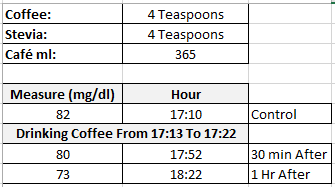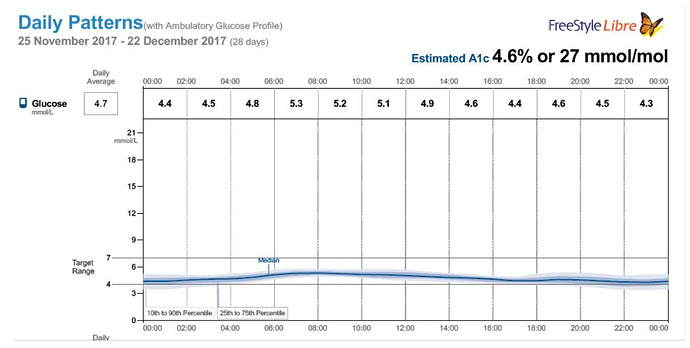Glucose rises when we eat carbohydrate or sugar, yes. It should not rise as the result of consuming an artificial sweetener, however, because in the U.S., no artificial sweetener may be sold, unless there is proof that it does not cause an increase in blood sugar.
People’s concern here is with insulin. If your blood sugar drops significantly, it implies that you had a spike in insulin as a response to the sweetener (the U.S. Food and Drug Administration cares only about blood glucose, not blood insulin, so manufacturers never test for the effect of their product on insulin; there is plenty of anecdotal evidence to suggest, however, that there are people who react to certain artificial sweeteners with an insulin spike).
In your case, the drop is barely outside the range of error of your meter, so if there was an insulin spike, it was probably not a serious one.
A friend of mine is supposedly working on developing a home insulin meter; however, there are a number of difficult technical issues to overcome, so he’s not likely to come up with anything soon.


